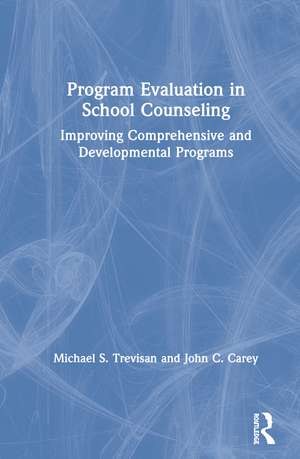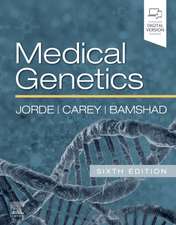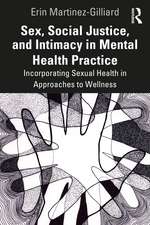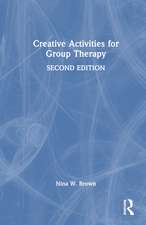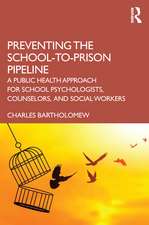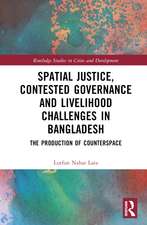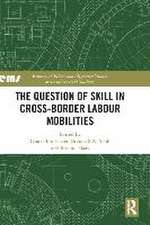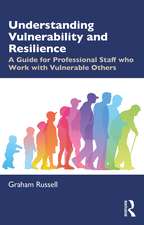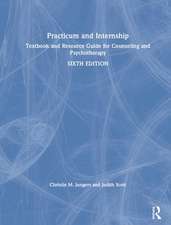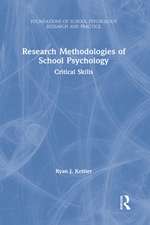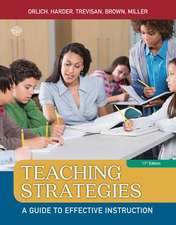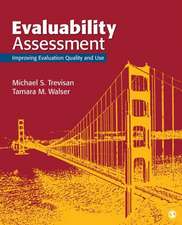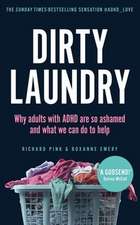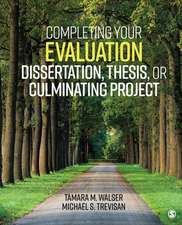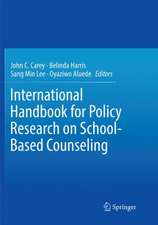Program Evaluation in School Counseling: Improving Comprehensive and Developmental Programs
Autor Michael S. Trevisan, John C. Careyen Limba Engleză Hardback – 16 mar 2020
Written by two accomplished authors who teamed up to build evaluation capacity among school and school-based counselors internationally, the book highlights their interdisciplinary work, covering many years and several continents. Based on the authors’ model for teaching program evaluation and their research on school counselor competence in program evaluation, this concise, clear, and practical guide supports the continuing professional development of school counselors through training, workshops, and self-study. This book addresses the program evaluation knowledge, skills, and understandings that school-based counselors are expected to use in line with the CACREP 2016 Standards.
The book is intended as a companion text for university courses in research methods and/or in the organization and administration of counseling services. It is also appropriate as a self-study guide to help practicing school counselors develop expertise in evaluation.
| Toate formatele și edițiile | Preț | Express |
|---|---|---|
| Paperback (1) | 298.61 lei 6-8 săpt. | |
| Taylor & Francis – 10 mar 2020 | 298.61 lei 6-8 săpt. | |
| Hardback (1) | 813.62 lei 6-8 săpt. | |
| Taylor & Francis – 16 mar 2020 | 813.62 lei 6-8 săpt. |
Preț: 813.62 lei
Preț vechi: 989.85 lei
-18% Nou
Puncte Express: 1220
Preț estimativ în valută:
155.71€ • 161.96$ • 128.54£
155.71€ • 161.96$ • 128.54£
Carte tipărită la comandă
Livrare economică 14-28 aprilie
Preluare comenzi: 021 569.72.76
Specificații
ISBN-13: 9781138346574
ISBN-10: 1138346578
Pagini: 150
Ilustrații: 56
Dimensiuni: 152 x 229 mm
Greutate: 0.46 kg
Ediția:1
Editura: Taylor & Francis
Colecția Routledge
Locul publicării:Oxford, United Kingdom
ISBN-10: 1138346578
Pagini: 150
Ilustrații: 56
Dimensiuni: 152 x 229 mm
Greutate: 0.46 kg
Ediția:1
Editura: Taylor & Francis
Colecția Routledge
Locul publicării:Oxford, United Kingdom
Public țintă
Postgraduate and Professional Practice & DevelopmentCuprins
1: Toward a Conceptual Understanding of Evaluation for School Counselors; 2: Evaluation and the School Counseling Program and Profession; 3: Involving Stakeholders; 4: Developing Theories of Action and Logic Models; 5: Developing School Counseling Program Evaluation Questions; 6: The Evaluation Design and Methods; 7: Data Analysis for Quantitative Data; 8: Data Analysis for Qualitative Data; 9: Reporting Evaluation Results and Using Findings; 10: Evaluation Knowledge Skills and Practice; Glossary
Notă biografică
Michael S. Trevisan, PhD, is dean of the college of education at Washington State University and professor of educational psychology. He has worked in evaluation for 30+ years and is widely published in the field. He has provided numerous evaluation workshops to school counselors in the US and internationally.
John C. Carey, PhD, is an emeritus professor of school counseling and the associate director of the Ronald H. Fredrickson Center for School Counseling Outcomes Research at the University of Massachusetts. He is a leader in evidence-based school counseling and has published extensively. He has offered evaluation training for counselors in Africa, Asia, Europe, Central America, and North America.
John C. Carey, PhD, is an emeritus professor of school counseling and the associate director of the Ronald H. Fredrickson Center for School Counseling Outcomes Research at the University of Massachusetts. He is a leader in evidence-based school counseling and has published extensively. He has offered evaluation training for counselors in Africa, Asia, Europe, Central America, and North America.
Recenzii
"I have been waiting for this comprehensive and practical guide to school counseling program evaluation for a long time. Trevisan and Carey are recognized leaders in school counseling research and evaluation and bring their expertise to this critically important topic. They provide vignettes and practical examples in each chapter, making a complex topic easy to understand and apply in real world schools. A valuable resource that provides a concise summary of best practices in program evaluation, this is an essential text for any school counseling program. "
Greg Brigman, Ph.D. Professor, Department of Counselor Education Florida Atlantic University
"Written as a short companion text for counselor education courses focused on evaluation, Carey and Trevisan’s Program Evaluation in School Counselingwould be a welcomed addition for those looking to make this topic more palpable for students and future practicing counselors.
Evaluation can be an intimidating process, but this text walks readers through each phase in process, from identifying professional standards, to considering the valuable role that stakeholders should play, and garnering their assistance in developing sound evaluation questions. As a counselor educator who routinely engages in research projects, I found Chapter 4 of particular value as it covers theories of action and logic models; the authors provide several examples of how these tools can be used to effectively guide and monitor an evaluation plan. I would strongly recommend this text to educators in graduate level counseling programs who are interested in fostering in their students a deeper understanding, respect, and comfort in sound program evaluation, as this is an area our field has been lacking in for some time. I commend the authors for helping us fill that gap."
Melissa Mariani, Ph.D. Associate Professor, Department of Counselor Education Florida Atlantic University
"I teach an applied research course that walks students through the research process. Several of my students' projects each year can easily be categorized as program evaluations. Locating high quality program evaluation materials is routinely a struggle. When students read outside of school counseling they have a hard time adapting the content to their context. This book will be very helpful in bridging these gaps. I look forward to using it in my research class and also have plans to use it as a supplemental resource in another course entitled, Applied Theories and Techniques in School Counseling. Drs. Carey and Trevisan are experts in evaluation and school counseling that have written a book that addresses practical evaluation issues for school counselors, but I would argue this book also offers tremendous opportunities for increasing the rigor, efficacy and legitimacy of school counseling as a vital activity within our educational system."
Ian Martin, Associate Professor, University of San Diego
"Today’s school counselors have a difficult enough job as it is and cannot afford to be misguided about program evaluation. The current education climate is shifting towards a clearer understanding of the role that school counselors play in student success, making fidelity in program evaluation of great importance. Many school counselors are already doing some of the tasks of program evaluation as part of implementing a comprehensive school counseling program (e.g., communicating with stakeholders, analyzing data, distributing surveys, setting goals). However, little direction has been available in the field to help them intentionally put all the pieces together. Trevisan and Carey present a practical framework of six integrated components that help those in training and those in the field understand when existing evaluation practices in school counseling may be sufficient, when they may fall short, and how to make improvements.
School counselors and graduate students in training will find the tables and glossary of terms especially valuable for learning newer concepts (e.g., program evaluation standards, theories of action, logic models). The references to the ASCA National Model make reading comfortable and familiar and draw on a standard, prolific language in the profession. Many readers will have 'a-ha!' or 'oh yeah!' moments as they recognize concepts from other courses or professional development training (e.g., formative and summative assessment, qualitative analysis) that aren't often fully illuminated in the specific context of school counseling practice. The vignettes are relatable while still challenging readers to expand their knowledge of data-driven decision-making to authentic program evaluation. Counselor educators and those who provide support to school counselors will appreciate how the text fills in the knowledge gaps left behind by a frequent lack of integrated preparation including separated courses in appraisal, research, and topics in school counseling.
Program Evaluation in School Counselingis a valuable text for anyone in the field of school counseling. Early on in the text, it is evident the authors have substantial knowledge of the experiences of school counselors and appreciate the needs of the field as a whole. School counselors and graduates will be affirmed in what they know and do already while also being supported with the new knowledge they need to improve their practice of program evaluation. The clear, engaging format and the warm writing style of this work are highly accessible to both practitioner and scholarly audiences. As a primary or complementary source for training at the preservice or in-service level, the text can serve well in both cases."
Erin Mason, Ph.D., LPC Department of Counseling and Psychological Services Georgia State University
"Drs. Carey and Trevisan have written a concise, easy to read and comprehensive guide on evaluation in school counseling. The authors’ expertise in the realm of evaluation along with their casual style of writing is on display. Program Evaluation in School Counseling: Improving Comprehensive and Developmental Programs provides practical and useful strategies by which school counselors can appraise their comprehensive counseling program and its many elements. This book is the first of its kind with a unique and focused attention on school counselors’ use of evaluation procedures that will aid both practitioners and school counselor trainees as they learn to appraise their programs. The use of case vignettes and easy to read language brings the concepts and application of evaluation to life. Another unique feature of this book is the chapter describing theories of action and logic models for developing, communicating, and evaluating school counseling programs. The authors’ descriptions of quantitative and qualitative evaluations are easy to read and yet provide a detailed account of how to implement these evaluation methods in real practice. This book is a good read for anyone, students or practitioners, looking to learn program evaluation in the context of school counseling."
Patrick R. Mullen, PhD School Counseling Program Coordinator, Assistant Professor William & Mary
"It is a well-kept open secret that as a whole, school counselors still struggle with—and in some cases, shrink away from—data collection and program evaluation. At long last, Trevisan and Carey deliver a book that will help remedy that debilitating truth. As advocates for an interdisciplinary approach between the ever-evolving fields of program evaluation and school counseling, they developed and thoroughly described throughout the text, a six-component evaluation framework that meets rigorous industry standards while remaining user-friendly and accessible. Moreover, the authors successfully integrated ASCA National Model components into their evaluation framework in intuitive and relevant ways for school counselors. Importantly, throughout the book, practical recommendations to ensure culturally responsive evaluations in schools are shared.
In an era of increased counselor demands, diminishing resources, ongoing societal shifts and changing demographics, our profession must find ways to improve our counseling programs and services to promote equitable educational outcomes and to adequately document our work. We will be using this text in our school counseling research and evaluation course to help accomplish that feat and I highly recommend that all counselor education programs and school counseling departments looking to improve their practice do the same."
Melissa S. Ockerman, Ph.D. Associate Professor DePaul University
"Program Evaluation in School Counselingmarries the disciplines of school counseling and program evaluation in a format easily accessible by pre-service and practicing school counselors, and school counseling administrators. Throughout the book are numerous examples linking program evaluation standards to the ASCA National Model and school counseling practice, bringing to life an evaluation framework easily applied in a variety of contexts. The ultimate goal of program evaluation in school counseling is to improve programs and services for students, and this book provides a roadmap for doing so with rigor – from engaging stakeholders to identify the purpose of evaluation to communicating results, readers will learn how a school counselor’s knowledge and skillset can be leveraged to conduct impactful evaluations of the entire school counseling program or specific interventions and activities within one."
Tim Poynton, Ed.D., GCDF Associate Professor, Department of Counseling & School Psychology University of Massachusetts-Boston
"Program Evaluation in School Counselingprovides a road map for how professional school counselors conduct program evaluation within their comprehensive school counseling programs. The vignettes provided throughout the text give the reader a context for which to consider the appropriate evaluation methods and the potential benefits for utilizing a variety of systemic evaluation approaches. This exceptional text offers readers essential and real-world examples to immediately enhance their professional practice."
Elizabeth Villares, Ph.D. Professor of School Counseling Florida Atlantic University
Greg Brigman, Ph.D. Professor, Department of Counselor Education Florida Atlantic University
"Written as a short companion text for counselor education courses focused on evaluation, Carey and Trevisan’s Program Evaluation in School Counselingwould be a welcomed addition for those looking to make this topic more palpable for students and future practicing counselors.
Evaluation can be an intimidating process, but this text walks readers through each phase in process, from identifying professional standards, to considering the valuable role that stakeholders should play, and garnering their assistance in developing sound evaluation questions. As a counselor educator who routinely engages in research projects, I found Chapter 4 of particular value as it covers theories of action and logic models; the authors provide several examples of how these tools can be used to effectively guide and monitor an evaluation plan. I would strongly recommend this text to educators in graduate level counseling programs who are interested in fostering in their students a deeper understanding, respect, and comfort in sound program evaluation, as this is an area our field has been lacking in for some time. I commend the authors for helping us fill that gap."
Melissa Mariani, Ph.D. Associate Professor, Department of Counselor Education Florida Atlantic University
"I teach an applied research course that walks students through the research process. Several of my students' projects each year can easily be categorized as program evaluations. Locating high quality program evaluation materials is routinely a struggle. When students read outside of school counseling they have a hard time adapting the content to their context. This book will be very helpful in bridging these gaps. I look forward to using it in my research class and also have plans to use it as a supplemental resource in another course entitled, Applied Theories and Techniques in School Counseling. Drs. Carey and Trevisan are experts in evaluation and school counseling that have written a book that addresses practical evaluation issues for school counselors, but I would argue this book also offers tremendous opportunities for increasing the rigor, efficacy and legitimacy of school counseling as a vital activity within our educational system."
Ian Martin, Associate Professor, University of San Diego
"Today’s school counselors have a difficult enough job as it is and cannot afford to be misguided about program evaluation. The current education climate is shifting towards a clearer understanding of the role that school counselors play in student success, making fidelity in program evaluation of great importance. Many school counselors are already doing some of the tasks of program evaluation as part of implementing a comprehensive school counseling program (e.g., communicating with stakeholders, analyzing data, distributing surveys, setting goals). However, little direction has been available in the field to help them intentionally put all the pieces together. Trevisan and Carey present a practical framework of six integrated components that help those in training and those in the field understand when existing evaluation practices in school counseling may be sufficient, when they may fall short, and how to make improvements.
School counselors and graduate students in training will find the tables and glossary of terms especially valuable for learning newer concepts (e.g., program evaluation standards, theories of action, logic models). The references to the ASCA National Model make reading comfortable and familiar and draw on a standard, prolific language in the profession. Many readers will have 'a-ha!' or 'oh yeah!' moments as they recognize concepts from other courses or professional development training (e.g., formative and summative assessment, qualitative analysis) that aren't often fully illuminated in the specific context of school counseling practice. The vignettes are relatable while still challenging readers to expand their knowledge of data-driven decision-making to authentic program evaluation. Counselor educators and those who provide support to school counselors will appreciate how the text fills in the knowledge gaps left behind by a frequent lack of integrated preparation including separated courses in appraisal, research, and topics in school counseling.
Program Evaluation in School Counselingis a valuable text for anyone in the field of school counseling. Early on in the text, it is evident the authors have substantial knowledge of the experiences of school counselors and appreciate the needs of the field as a whole. School counselors and graduates will be affirmed in what they know and do already while also being supported with the new knowledge they need to improve their practice of program evaluation. The clear, engaging format and the warm writing style of this work are highly accessible to both practitioner and scholarly audiences. As a primary or complementary source for training at the preservice or in-service level, the text can serve well in both cases."
Erin Mason, Ph.D., LPC Department of Counseling and Psychological Services Georgia State University
"Drs. Carey and Trevisan have written a concise, easy to read and comprehensive guide on evaluation in school counseling. The authors’ expertise in the realm of evaluation along with their casual style of writing is on display. Program Evaluation in School Counseling: Improving Comprehensive and Developmental Programs provides practical and useful strategies by which school counselors can appraise their comprehensive counseling program and its many elements. This book is the first of its kind with a unique and focused attention on school counselors’ use of evaluation procedures that will aid both practitioners and school counselor trainees as they learn to appraise their programs. The use of case vignettes and easy to read language brings the concepts and application of evaluation to life. Another unique feature of this book is the chapter describing theories of action and logic models for developing, communicating, and evaluating school counseling programs. The authors’ descriptions of quantitative and qualitative evaluations are easy to read and yet provide a detailed account of how to implement these evaluation methods in real practice. This book is a good read for anyone, students or practitioners, looking to learn program evaluation in the context of school counseling."
Patrick R. Mullen, PhD School Counseling Program Coordinator, Assistant Professor William & Mary
"It is a well-kept open secret that as a whole, school counselors still struggle with—and in some cases, shrink away from—data collection and program evaluation. At long last, Trevisan and Carey deliver a book that will help remedy that debilitating truth. As advocates for an interdisciplinary approach between the ever-evolving fields of program evaluation and school counseling, they developed and thoroughly described throughout the text, a six-component evaluation framework that meets rigorous industry standards while remaining user-friendly and accessible. Moreover, the authors successfully integrated ASCA National Model components into their evaluation framework in intuitive and relevant ways for school counselors. Importantly, throughout the book, practical recommendations to ensure culturally responsive evaluations in schools are shared.
In an era of increased counselor demands, diminishing resources, ongoing societal shifts and changing demographics, our profession must find ways to improve our counseling programs and services to promote equitable educational outcomes and to adequately document our work. We will be using this text in our school counseling research and evaluation course to help accomplish that feat and I highly recommend that all counselor education programs and school counseling departments looking to improve their practice do the same."
Melissa S. Ockerman, Ph.D. Associate Professor DePaul University
"Program Evaluation in School Counselingmarries the disciplines of school counseling and program evaluation in a format easily accessible by pre-service and practicing school counselors, and school counseling administrators. Throughout the book are numerous examples linking program evaluation standards to the ASCA National Model and school counseling practice, bringing to life an evaluation framework easily applied in a variety of contexts. The ultimate goal of program evaluation in school counseling is to improve programs and services for students, and this book provides a roadmap for doing so with rigor – from engaging stakeholders to identify the purpose of evaluation to communicating results, readers will learn how a school counselor’s knowledge and skillset can be leveraged to conduct impactful evaluations of the entire school counseling program or specific interventions and activities within one."
Tim Poynton, Ed.D., GCDF Associate Professor, Department of Counseling & School Psychology University of Massachusetts-Boston
"Program Evaluation in School Counselingprovides a road map for how professional school counselors conduct program evaluation within their comprehensive school counseling programs. The vignettes provided throughout the text give the reader a context for which to consider the appropriate evaluation methods and the potential benefits for utilizing a variety of systemic evaluation approaches. This exceptional text offers readers essential and real-world examples to immediately enhance their professional practice."
Elizabeth Villares, Ph.D. Professor of School Counseling Florida Atlantic University
Descriere
Program Evaluation in School Counseling is the first book on program evaluation that looks to the field and literature of program evaluation and then relates methods, procedures, and practices back to the practice of school counseling.
